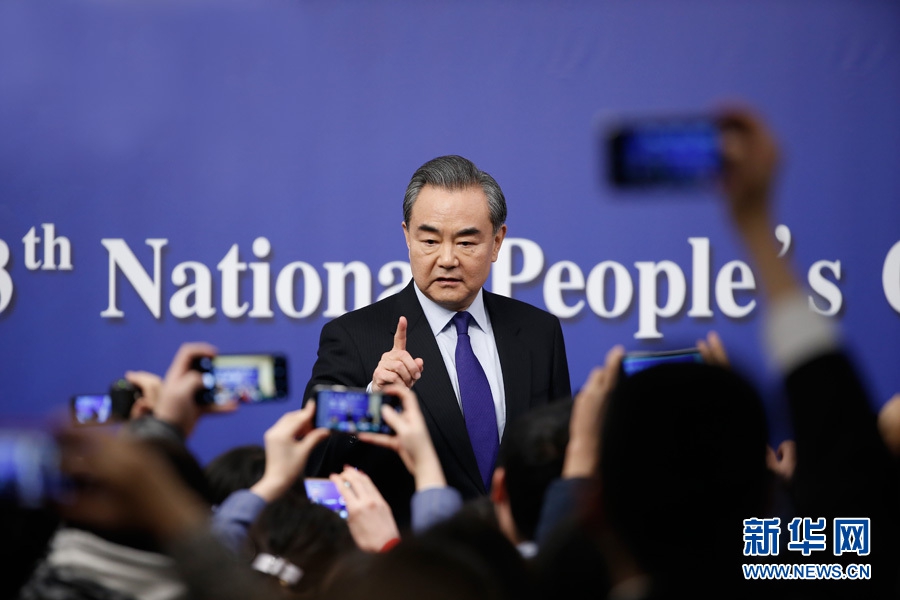
1. The five functions of the operating system are processor management, memory management, device management, file management and job management. Processor management The most basic function of processor management is to process interrupt events. After configuring the operating system, various events can be processed.
2. The main function of the computer operating system is process management, and its work is mainly process scheduling. In the case of a single user and a single taskNext, the processor is only monopolized by one user's task, and the process management work is very simple.
3. Operating System (abbreviation: OS) is a group of interrelated system software programs that supervise and control computer operation, use and run hardware, software resources and provide public services to organize user interaction.
4. Five major management functions of the operating system: (1) Job management: including tasks, interface management, human-computer interaction, graphical interface, voice control and virtual reality, etc. ( 2) File management: also known as information management. ( 3) Storage management: The essence is the management of storage "space", which mainly refers to the management of the main memory.
Any information system has five basic functions, namely: information collection and recording (input); information storage; information processing; information transmission; information output .
According to the functional introduction of the information system, the information system has five basic functions: input, storage, processing, output and control. Different functions have different functions, such as input function: the input function of the information system is determined by the purpose to be achieved by the system, the ability of the system and the permission of the information environment.
Five basic functions of the information system: input, storage, processing, output and control. Input function: The input function of the information system is determined by the purpose to be achieved by the system, the ability of the system and the permission of the information environment.Storage function: Storage function refers to the ability of the system to store various information and data. Mainly including: statistical functions.
The operating system has five functions: processor management: mainly controls and manages the work of the CPU. Storage management: mainly allocate and manage memory. Device management: mainly manage basic input and output devices. File management: responsible for the organization, storage, operation and protection of computer files.
The functions of the computer operating system include: processor management, memory management, device management, file management, job management and other functional modules. Processor management. The most basic function of processor management is to handle interrupt events. The processor can only detect interrupt events and generate interrupts and cannot process them.
The main function of the computer operating system is process management, and its main work is process scheduling. In the case of a single user and a single task, the processor is only monopolized by one user's task, and the work of process management is very simple.
The main functions of the operating system are process and processor management, job management, storage management, device management and file management, as follows: process and processor management. Because the execution of the program must rely on the processor, only one program flow can be processed and executed at any time. Homework management.
I) Processor management The most basic function of processor management is to handle interrupt events. The processor can only detect interrupt events and generate interrupts, and cannot handle these interrupt events. After configuring the operating system, all types of events can be handled.Another function of processor management is processor scheduling.
Five management functions of the operating system: job management: including tasks, interface management, human-computer interaction, graphical interface, voice control and virtual reality, etc. File management: also known as information management. Storage management: The essence is the management of storage "space", which mainly refers to the management of the main memory.

The storage management function of the operating system is to manage memory resources. It mainly realizes memory allocation and recovery, storage protection and memory expansion. The device management of the device management operating system is responsible for allocating and recycling external devices, and controlling external devices to operate according to the requirements of user programs.
The functions of the computer operating system include: processor management, memory management, device management, file management, job management and other functional modules. Processor management. The most basic function of processor management is to handle interrupt events. The processor can only detect interrupt events and generate interrupts and cannot process them.
The five functions of the operating system are processor management, memory management, device management, file management and job management.Processor management The most basic function of processor management is to process interrupt events. After configuring the operating system, various events can be processed.
Casino Plus-APP, download it now, new users will receive a novice gift pack.
1. The five functions of the operating system are processor management, memory management, device management, file management and job management. Processor management The most basic function of processor management is to process interrupt events. After configuring the operating system, various events can be processed.
2. The main function of the computer operating system is process management, and its work is mainly process scheduling. In the case of a single user and a single taskNext, the processor is only monopolized by one user's task, and the process management work is very simple.
3. Operating System (abbreviation: OS) is a group of interrelated system software programs that supervise and control computer operation, use and run hardware, software resources and provide public services to organize user interaction.
4. Five major management functions of the operating system: (1) Job management: including tasks, interface management, human-computer interaction, graphical interface, voice control and virtual reality, etc. ( 2) File management: also known as information management. ( 3) Storage management: The essence is the management of storage "space", which mainly refers to the management of the main memory.
Any information system has five basic functions, namely: information collection and recording (input); information storage; information processing; information transmission; information output .
According to the functional introduction of the information system, the information system has five basic functions: input, storage, processing, output and control. Different functions have different functions, such as input function: the input function of the information system is determined by the purpose to be achieved by the system, the ability of the system and the permission of the information environment.
Five basic functions of the information system: input, storage, processing, output and control. Input function: The input function of the information system is determined by the purpose to be achieved by the system, the ability of the system and the permission of the information environment.Storage function: Storage function refers to the ability of the system to store various information and data. Mainly including: statistical functions.
The operating system has five functions: processor management: mainly controls and manages the work of the CPU. Storage management: mainly allocate and manage memory. Device management: mainly manage basic input and output devices. File management: responsible for the organization, storage, operation and protection of computer files.
The functions of the computer operating system include: processor management, memory management, device management, file management, job management and other functional modules. Processor management. The most basic function of processor management is to handle interrupt events. The processor can only detect interrupt events and generate interrupts and cannot process them.
The main function of the computer operating system is process management, and its main work is process scheduling. In the case of a single user and a single task, the processor is only monopolized by one user's task, and the work of process management is very simple.
The main functions of the operating system are process and processor management, job management, storage management, device management and file management, as follows: process and processor management. Because the execution of the program must rely on the processor, only one program flow can be processed and executed at any time. Homework management.
I) Processor management The most basic function of processor management is to handle interrupt events. The processor can only detect interrupt events and generate interrupts, and cannot handle these interrupt events. After configuring the operating system, all types of events can be handled.Another function of processor management is processor scheduling.
Five management functions of the operating system: job management: including tasks, interface management, human-computer interaction, graphical interface, voice control and virtual reality, etc. File management: also known as information management. Storage management: The essence is the management of storage "space", which mainly refers to the management of the main memory.

The storage management function of the operating system is to manage memory resources. It mainly realizes memory allocation and recovery, storage protection and memory expansion. The device management of the device management operating system is responsible for allocating and recycling external devices, and controlling external devices to operate according to the requirements of user programs.
The functions of the computer operating system include: processor management, memory management, device management, file management, job management and other functional modules. Processor management. The most basic function of processor management is to handle interrupt events. The processor can only detect interrupt events and generate interrupts and cannot process them.
The five functions of the operating system are processor management, memory management, device management, file management and job management.Processor management The most basic function of processor management is to process interrupt events. After configuring the operating system, various events can be processed.
Hearthstone arena deck Builder
author: 2025-02-05 20:58100 free bonus casino no deposit GCash
author: 2025-02-05 21:15 Casino Plus GCash login
Casino Plus GCash login
442.95MB
Check 100 free bonus casino no deposit GCash
100 free bonus casino no deposit GCash
573.45MB
Check Bingo Plus
Bingo Plus
544.77MB
Check App to watch Champions League live free
App to watch Champions League live free
831.35MB
Check Casino Plus
Casino Plus
852.41MB
Check Hearthstone Arena class tier list 2024
Hearthstone Arena class tier list 2024
281.97MB
Check Hearthstone Arena win rate
Hearthstone Arena win rate
856.46MB
Check Hearthstone deck
Hearthstone deck
378.34MB
Check UEFA Champions League live streaming free
UEFA Champions League live streaming free
528.87MB
Check Hearthstone deck
Hearthstone deck
412.62MB
Check 100 free bonus casino no deposit GCash
100 free bonus casino no deposit GCash
649.77MB
Check Casino redeem
Casino redeem
782.39MB
Check Hearthstone Arena win rate
Hearthstone Arena win rate
623.97MB
Check Hearthstone deck
Hearthstone deck
959.65MB
Check UEFA European championship
UEFA European championship
626.98MB
Check Bingo Plus stock
Bingo Plus stock
655.85MB
Check UEFA Champions League live streaming app
UEFA Champions League live streaming app
479.48MB
Check Casino Plus login register
Casino Plus login register
372.71MB
Check DigiPlus Philippine
DigiPlus Philippine
731.48MB
Check 100 free bonus casino no deposit GCash
100 free bonus casino no deposit GCash
846.14MB
Check DigiPlus Philippine
DigiPlus Philippine
187.64MB
Check Casino free 100 no deposit
Casino free 100 no deposit
956.75MB
Check European Cup live
European Cup live
575.93MB
Check Europa League app
Europa League app
953.79MB
Check Champions League
Champions League
715.36MB
Check Hearthstone Wild Decks
Hearthstone Wild Decks
469.18MB
Check Hearthstone deck
Hearthstone deck
146.64MB
Check Hearthstone Arena class tier list 2024
Hearthstone Arena class tier list 2024
929.45MB
Check UEFA Champions League live streaming app
UEFA Champions League live streaming app
619.47MB
Check Hearthstone Arena Tier List
Hearthstone Arena Tier List
989.11MB
Check Free sports events uefa champions league app android
Free sports events uefa champions league app android
425.86MB
Check DigiPlus
DigiPlus
375.24MB
Check App to watch Champions League live free
App to watch Champions League live free
335.98MB
Check UEFA Champions League live streaming app
UEFA Champions League live streaming app
772.53MB
Check Casino Plus
Casino Plus
926.62MB
Check UEFA live free
UEFA live free
145.97MB
Check
Scan to install
Casino Plus to discover more
Netizen comments More
1313 DigiPlus
2025-02-05 22:40 recommend
175 bingo plus update today Philippines
2025-02-05 22:31 recommend
1302 LR stock price Philippines
2025-02-05 21:40 recommend
2489 UEFA European championship
2025-02-05 21:10 recommend
1846 Free sports events uefa champions league app android
2025-02-05 20:06 recommend